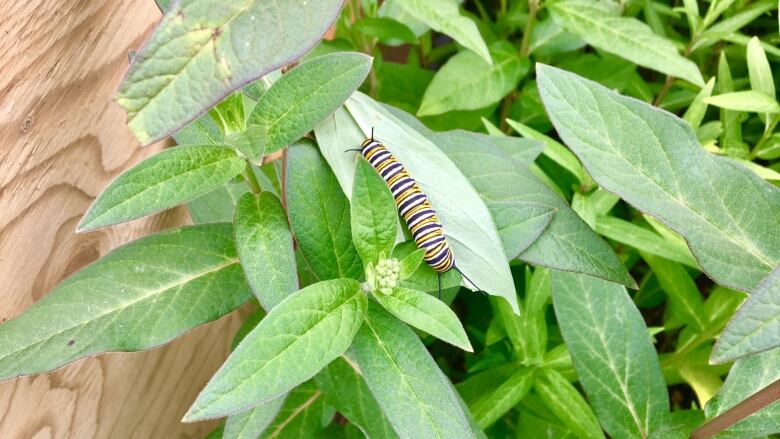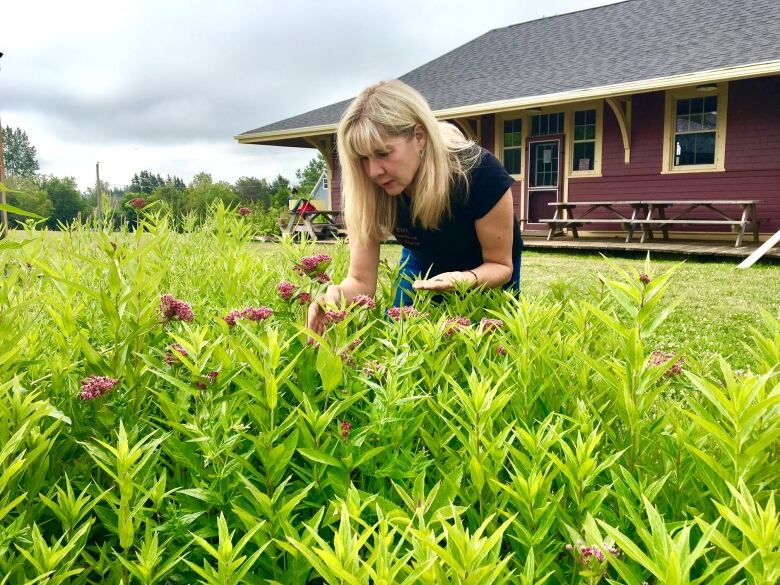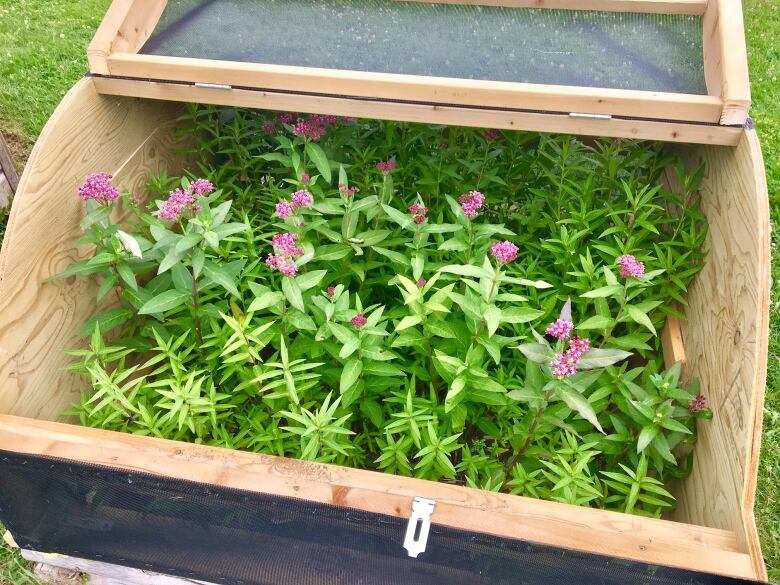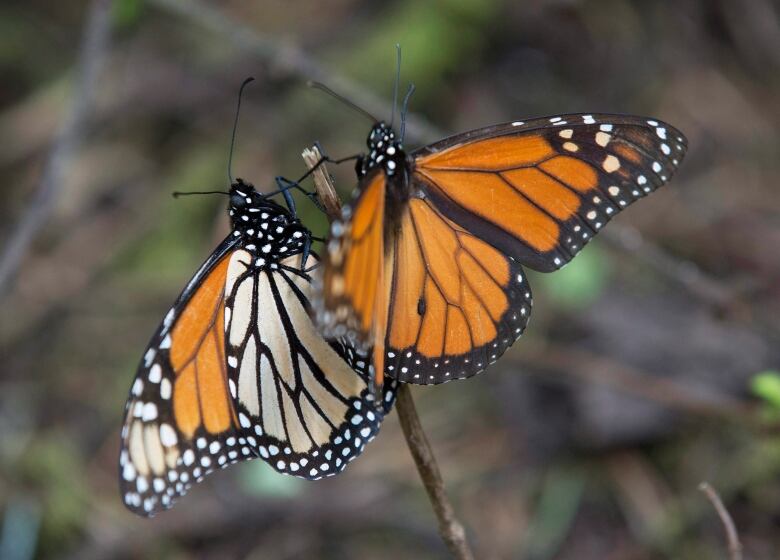'If you build it they will come': Wild monarch butterflies return to P.E.I.
Wild monarch caterpillars discovered at way station gardens in Emerald

It's taken three years of breeding, raising, tagging and releasing domestic monarch butterflies, but the Bedeque Bay Environmental Management Association (BBEMA) says this year, wild monarch butterflies have returned to P.E.I. from Mexico.
BBEMA made the discovery at its monarch way station gardens in Emerald, P.E.I., last week.
It's very exciting," said Tracy Brown, executive director of BBEMA.
"What we've been doing is we've been propagating and building up gardens in order to provide nectaring and feeding stations for the monarchs for the ones we release and hopefully for ones coming back as well. We've had to build up the beds and we've had to plant the milkweed."
'Species at risk'
The monarchs have beenbreeding and laying eggs in milkweed gardens built on top of old train beds.
BBEMA staff took a habitat of plain grass, added swampmilkweed native to P.E.I., and turned it into a breeding opportunity for a species at risk.

"The monarch butterflies unfortunately right now are a species at risk. It is on an extreme decline. In the last 20 years, we've lost about 90 per cent of the population," said Brown.
"Right now, our goal is to work with land owners and try and increase the habitat. Right now the biggest issue and the biggest threat to them is loss of habitat, loss of breeding habitat and loss of nectaring habitat."
Each day, more and more caterpillars appear in the gardens a sign of good things to come for the wild monarch population.
'Hunt for caterpillars'
"Obviously, they've loved our habitat," said Brown. "They've come back, they've bred, and they've laid eggs, so we now have quite a few caterpillars and every day you kind of see more because as they grow, they double their size every second day, so every couple of days my staff gets to come out and go on a hunt for caterpillars."
The first wild butterflies are expected to emerge in about two weeks.

They'll breed, then eventually tagged and released in order to track their migration to Mexico.
"We know they leave P.E.I., we know they end up in Mexico, but we're not exactly sure outside of a few key stopover points how they go there, which habitats, which areas they fly through. What we wanted to do is we wanted to tag them so that every monarch that goes to Mexico ends up with an individual ID tag."

"Now raising wild monarchs'
Brown said the group hopes to work with scientists and landowners to sustain the monarch population.
"The fact that if you build it they will come, we can prove it here with other landowners that we've done it here," she said.
"We've built gardens that are successful and are now raising wild monarchs."
- MORE P.E.I. NEWS | 'Your vision is attacked': Former P.E.I. pilot wants laser pointer apprehended
- MORE P.E.I. NEWS |Organic industry review gives P.E.I. mixed marks












_(720p).jpg)


 OFFICIAL HD MUSIC VIDEO.jpg)
.jpg)



























































































